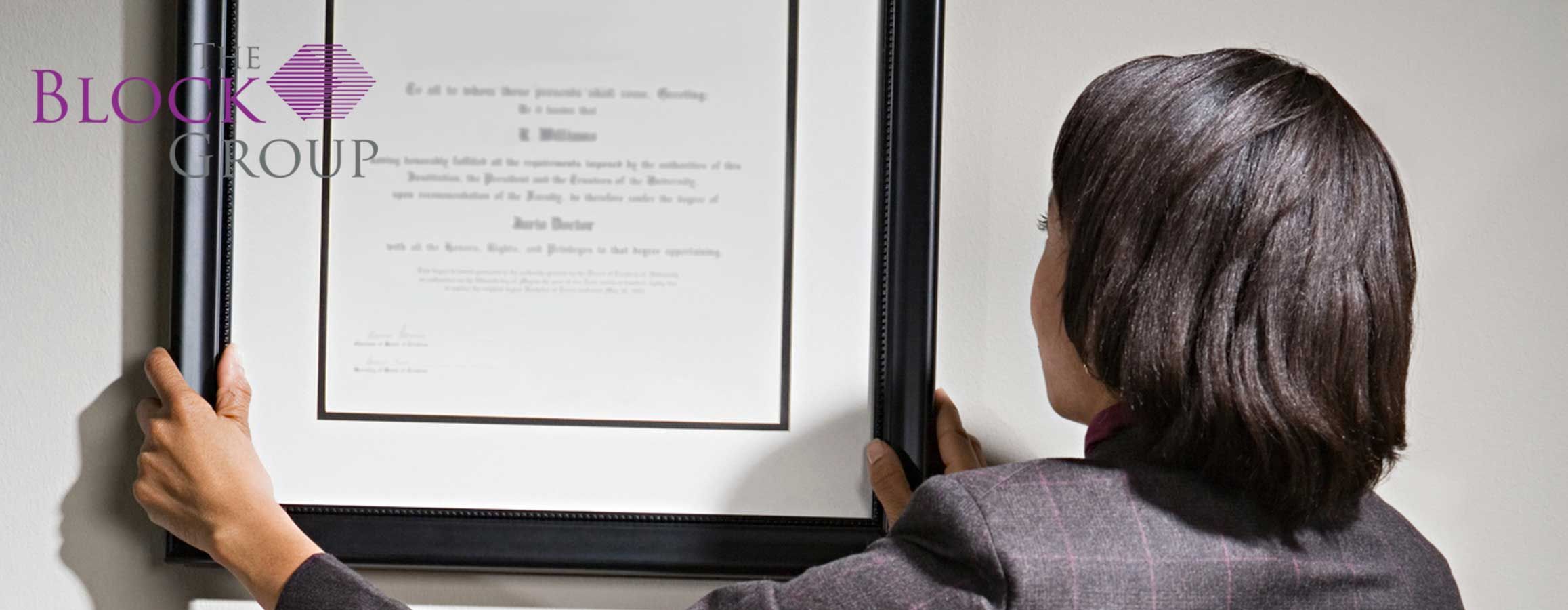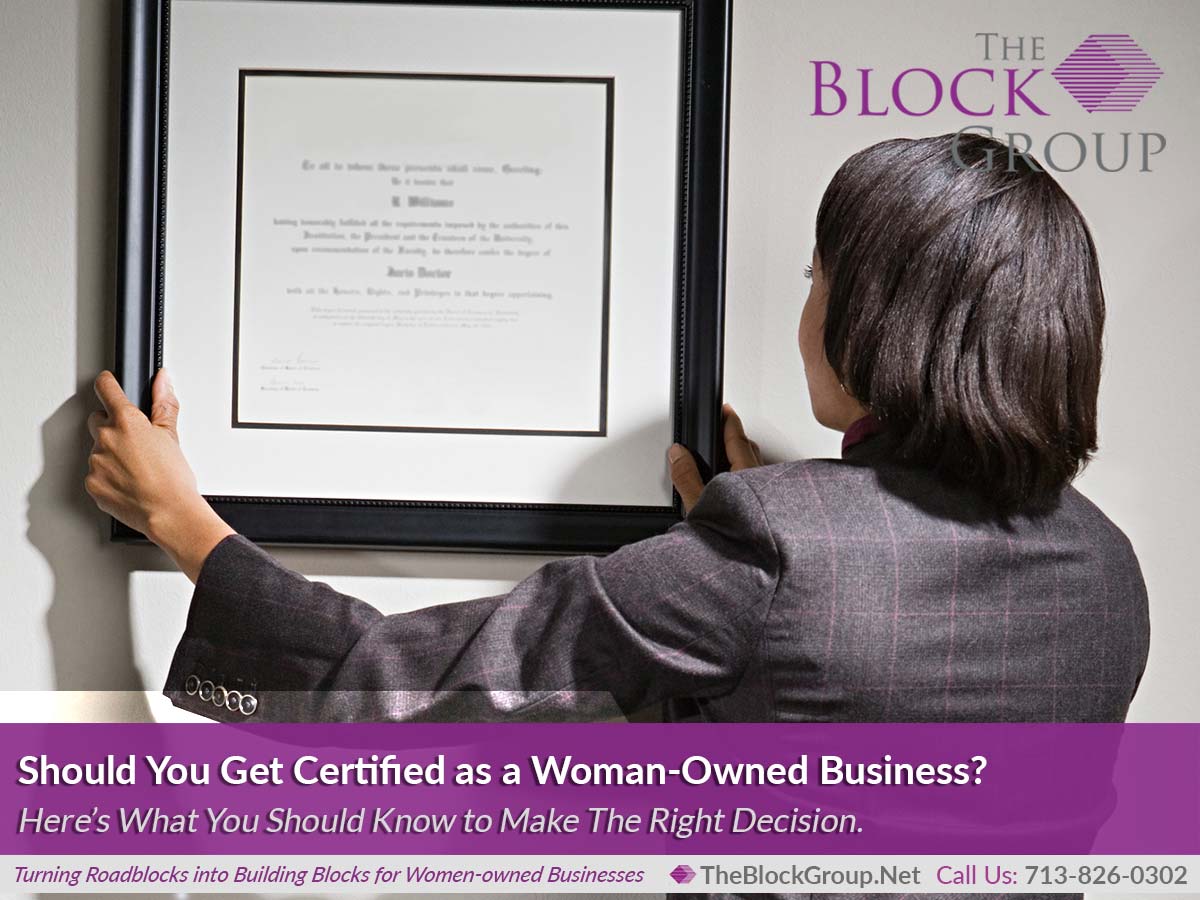
Should You Get Certified as a Woman-Owned Business?
Here’s What You Should Know to Make The Right Decision.
Female small business owners seeking contracts with corporate or government clients face a lot of competition. One way to get an edge is to get your company certified as a woman-owned business.
Certification makes your business more visible to potential clients, increases your networking opportunities and can expose you to new possibilities.
Here’s what you should know to make the right decision.
What is certification?
Basically, there are two types of woman-owned business certifications. If you want to do business with the private sector, nonprofits, state governments or local governments, you should pursue Women's Business Enterprise (WBE) certification.
Want to target the federal government as a client? Then, you will benefit from Women-Owned Small Business (WOSB) or Economically Disadvantaged Women-Owned Small Business (EDWOSB) certification. Federal government agencies use these criteria when seeking women-owned companies to work with.
What can certification do for you?
Being certified as a woman-owned business doesn’t guarantee anything, but it can help you gain an advantage with potential clients.
- Federal government agencies are required by law to meet goals for giving a certain percentage of their contracts to WOSBs or EDWOSBs. In industries where women have historically been underrepresented, some federal agencies even set aside a certain percentage of their contracts for WOSBs or EDWOSBs.
- State and local governments, nonprofit and private sector businesses may have similar quotas to meet. In these situations, being certified can help your small business get in the door to compete with larger companies for contracts.
- Certification organizations may also offer member benefits such as educational programs, conferences, networking events and matchmaking opportunities.
- Do you already work with corporate or government clients? Certification as a woman-owned business could open up even more opportunities with those companies.
Step by step
How do you get started? There are a couple of options.
It’s possible to self-certify your business as a WOSB or EDWOSB through the SBA. Simply register with the System for Award Management (SAM.gov), visit Certify.SBA.gov and provide all requested documents.
But self-certification has some issues. The National Defense Authorization Act for Fiscal Year 2016 eliminated the self-certification process—but the SBA still hasn't decided how it will implement this change. As a result, you can still self-certify for now—but eventually, that won’t be an option.
Second, even if you do self-certify and land a contract as a result, you’re not home free. The contracting agency may require additional proof of your company’s woman-owned status. If you can’t provide what they want or provide it quickly enough, you could lose the contract.
To protect yourself, I recommend you certify via one of the four third-party organizations authorized to provide WOSB and EDWOSB certification. (Note: All four can also certify your company as a WBE.)
- Women’s Business Enterprise National Council
- El Paso Hispanic Chamber of Commerce
- National Women Business Owners Corporation
- US Women’s Chamber of Commerce
Each of these groups has specific criteria, but in general, you’ll need to prove:
- Your company is a for-profit business
- It meets SBA size standards as a small business
- The business is at least 51 percent owned and controlled by a woman/women who are U.S. citizens or Legal Resident Aliens
- Daily business operations are overseen by a woman/women
Also, you’ll need to fill out an application, pay a non-refundable application fee, provide documentation about your business and have the certifying organization visit your business.
Go over your application and documentation carefully when you apply to make sure they’re complete. Missing information will delay the already-lengthy process of certification (it typically takes 3 months or more).
Certification must be renewed every year by submitting another application, fee, and requested documentation. It’s simpler than the initial process, but you should still start the recertification process at least 4 months in advance of your certificate’s expiration date.
Source: Score
Patty Block, President and Founder of The Block Group, established her company to advocate for women-owned businesses, helping them position their companies for strategic growth. From improving cash flow…. to increasing staff productivity…. to scaling for growth, these periods of transition — and so many more — provide both challenges and opportunities. Managed effectively, change can become a productive force for growth. The Block Group harnesses that potential, turning roadblocks into building blocks for women-owned businesses.

Business consulting for women entrepreneurs in Houston Texas
Business consulting for women entrepreneurs in Houston Texas, Advice for women entrepreneurs, Business Coach in Houston Texas, Growth strategies for small business, Business coaching for women, Growth for women-owned businesses, Houston Texas business coaching, Financial strategies for small business, Small business consulting in Houston Texas, Business management consultant, Business, Consulting, Women, Entrepreneurs, Houston Texas, Coach, Growth, Strategies, Coaching, Owned, Owner, Financial, Consulting, Management.




